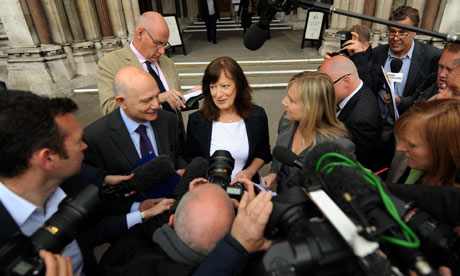Who wants to be a social worker?
The College of Social Work is speaking up against a tide of negative publicity to change perceptions. Mark Ivory explains.
-
- Mark Ivory
- Guardian Professiona

Who’d be a social worker? The question is the title of a series of programmes on Radio 4 that asks the very question social workers often put to themselves when the profession has been hung out to dry by the media.
For the majority of the public, social workers are only ever encountered as the media-designated “bunglers” who let down the child at the centre of the latest child protection crisis. Most people go through life without ever meeting a social worker. Many will tend to believe what they are told by the media, rather than reach their own conclusions about the profession.
This is why The College of Social Work has launched its Speak Up for Social Work campaign, to give our members a voice in the media, not only in response to a crisis but also in promoting the excellent work that most practitioners do day in and day out. We’re assembling a team of social workers who are ready and willing to offer fast, relevant and expert comment whenever a story breaks, to talk about the positive changes they have helped to bring about in the lives of those they work with.
Few social workers have spoken about their experience of being at the wrong end of a child protection crisis. But Martin Ruddock opened up about the “vitriol and anger” directed at him by the press after the death of Kimberley Carlile at the hands of her stepfather in the mid-1980s.
Rather than meekly submit to the vilification heaped on him as Kimberley’s social worker, Ruddock courageously spoke out. In his view, it worked – the attitude of the press changed overnight. “My passivity was making me a powerless victim,” he said. “I believe this is also true for the profession which continues to find it hard to be proactive in shaping the public image of social work. We are too frightened of making mistakes to use the media to our advantage.”
Nearly 30 years later, the Social Work Task Force found that social workers were still too often tongue-tied in a crisis, muzzled no doubt by over-protective employers and misplaced fears about client confidentiality. It was, the Task Force claimed, “symptomatic of a culture of defensiveness that often serves only to exacerbate the media frenzy.”
The fact is that newspapers will continue to write about social workers even if social workers themselves refuse to take calls from inquisitive journalists.
Through the college we have an unprecedented opportunity to rewrite the established narrative of “bullies” who wreck families and “wimps” who fail to rescue children from harm. By speaking up with the authority and expertise of their medical peers, they can begin to show the public that they are not the sinister and dangerous bogeys of media myth, but human, caring and for the most part highly competent. If people begin to see social work as it really is, the question may be less “who’d be a social worker?” than “who wouldn’t?”
Mark Ivory is strategic media manager of The College of Social Work.
http://www.guardian.co.uk/local-government-network/2011/jun/01/who-...

You need to be a member of Parents Against Injustice to add comments!
Join Parents Against Injustice